Big Brother's crystal ball: China developing software to monitor citizens and predict terrorist activity

We've become used to the idea of online surveillance thanks to Edward Snowden blowing the lid off the activities of the NSA and GCHQ. While it's easy and natural to bemoan the infringement of privacy such surveillance entails, no one ensures as limited and controlled an internet as the Chinese.
There's the famous Great Firewall of China for starters, and as part of a counter-terrorism program the country also passed a law requiring tech companies to provide access to encryption keys. Now the Communist Party has ordered one of its defense contractors to develop software that uses big data to predict terrorist activity.
Amazon values encryption so much that it drops support on Kindle Fire tablets

Amazon has came out in support of encryption, following Apple's recent legal battles with the US government, saying that it "plays a very, very important role" in protecting customer data.
But you might be surprised to learn that Amazon has also decided to quietly drop support for full disk encryption on its Android-based Kindle Fire tablets. Since it is portraying itself as an encryption and consumer advocate, its decision to go in the opposite direction strikes me as sheer hypocrisy.
Updated Snooper's charter will allow police to remotely hack phones and computers
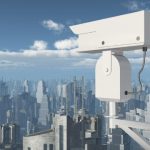
The UK's controversial Snooper's charter (or draft Investigatory Powers Bill) has been updated to grant the police sweeping new powers. The new legislation will permit authorities to not only access the browsing histories of suspected criminals, but also to remotely hack into computers and phones in certain circumstances.
Previous version of the bill had limited such powers to the investigation of "serious crime", but the updated version expands this dramatically. Home Secretary Theresa May is hoping to push the draft Investigatory Powers Bill through parliament later this year. The bill has already met with strong criticism from not only privacy groups, but also governmental advisers. While there are some concessions to protect unbreakable encryption, the latest changes will do little to assuage concerns with the bill.
Tor Project says Google, CloudFlare and others are involved in dark web surveillance and disruption
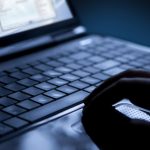
With privacy concerns and the threat of surveillance from the likes of the NSA, more and more people are turning to the dark web and Tor. The anonymous, encrypted network has become a haven for not just illegal activity, but also for those who simply don’t want what they do online to be tracked and traced.
But now the Tor Project has voiced concerns that CDN and DDoS protection service CloudFlare is monitoring Tor traffic by introducing CAPTCHAs and cookies. CloudFlare is not alone: similar accusations are levelled at Google and Yahoo which are described as 'larger surveillance companies'. Concerns about interference with Tor traffic have been raised by project administrators in a ticket entitled "Issues with corporate censorship and mass surveillance".
Mozilla sides with Apple against FBI -- proposes basic principles for government surveillance
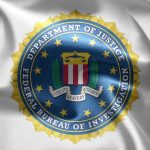
The ongoing dispute between the FBI and Apple is absolutely chilling. It shakes me to my core to think our government wants to force a company to write code under the guise of anti-terrorism. Quite frankly, the oft-argued opinion that supporting Apple in this regard is anti-American is not only wrong, but insulting. My soul still aches from 9/11, and I love America, but I also support Tim Cook and the company's fight to protect our civil liberties.
But forget my opinion -- major tech companies, such as Google and Microsoft, are standing up and pledging support for their competitor, Apple. Now, open source darling, Mozilla, is voicing its support too. Taking it a step further, however, the Firefox-maker is also proposing basic principles for government surveillance -- sort of like a bill of rights for encryption and surveillance.
Tim Cook goes off-script describing FBI iPhone backdoor request as 'cancer'

Say what you like about Apple, one thing is for sure -- it is one of the most scripted and tightly-controlled companies in existence. Everything is stage-managed to within an inch of its existence. Leaks about upcoming releases are rare, and there is a tight rein on the media and who has access to its products for review. So when the FBI asked Apple to unlock the iPhone of the San Bernardino shooter it was hardly surprising that the company was a little shaken and unprepared.
This was a media situation Apple was not in control of. Tim Cook has gone on the offensive in recent days, defending his company's decision not to help the FBI, and in a new interview with ABC News the CEO referred to the request to unlock the phone as requiring "software that we view as sort of the equivalent of cancer" -- something of a shocking thing to say when you consider the cause of death of his predecessor, Steve Jobs.
Bill Gates is wrong

I see something disingenuous about Microsoft cofounder Bill Gates supporting the government's demands that Apple selectively unlock an iPhone used by one of the San Bernardino, Calif. shooters. The former CEO turned philanthropist spoke to the Financial times in an interview posted today. The implications for Microsoft cannot be overstated, and the company's current chief executive should state corporate policy.
Gates' position aligns with the government's: That this case is specific, and isolated, and that the demand would merely provide "access to information". Here's the thing: The interviewer asks Gates if he supports tech companies providing backdoors to their smartphones. The technologist deflects: "Nobody's talking about a backdoor". Media consultants teach publicly-facing officials to offer non-answers exactly like this one. The answer defines the narrative, not the interviewer's question.
Thanks to encryption, UK efforts to block torrent sites are pointless

In the UK, ISPs are required to block access to a number of big-name torrent sites -- the thinking being that sites such as The Pirate Bay are used primarily for (gasp!) downloading pirated material. Despite the government's desire to control what people can access online, good old HTTPS means that people are able to very easily bypass any blocks that may be put in place.
There are all manner of proxy services and mirror sites that provide access to otherwise-blocked content, but these are really not needed. With the likes of The Pirate Bay and Kickass Torrents offering secure, encrypted connection, accessing the goodies they contain could involve little more than sticking an extra 's' in the URL.
Why Apple's shameless fight with the FBI is all about ego, not just cause

After spending the last few days soaking up as much as possible on the Apple-FBI San Bernardino iPhone spat, the evidence -- in my eyes -- has become crystal clear. Apple's planted itself on the wrong side of history here for numerous reasons, and is using nothing less than a finely scripted legalese tango in defending its ulterior motives.
As a part time, somewhat auxiliary member of the tech media at large, I'm a bit embarrassed at how poorly this story has been covered by my very own colleagues. Many of those who should undeniably have a more nuanced, intricate understanding of the technical tenets being argued here have spent the last week pollinating the internet with talking point, knee-jerk reaction.
Syed Farook's iCloud password was changed by officials; Trump proposes Apple boycott

Apple is standing fast on its decision not to help -- publicly, at least -- the FBI to gain access to the iPhone owned by Syed Farook, one of the San Bernardino terrorists. In the latest twist in the saga, Apple has revealed that the password for the Apple ID associated with the phone was changed whilst Farook was in custody.
Apple says that this closes off another route to accessing the data the FBI seeks. Had the password not been changed, the company says, it may have been possible to retrieve backup data without the need to create a backdoor into the suspect's phone. Meanwhile, wading in to the Apple/FBI debate with all of the elegance of an epileptic elephant, serial buffoon Donald Trump has called for a boycott of Apple products -- despite tweeting from an iPhone himself.
Apple is using a straw man argument to fight the FBI

Listen to Tim Cook and you’d be forgiven for thinking that Apple was standing up for the little guy, sticking up for the likes of you and I in fighting the FBI. The FBI, Apple would have you believe, wants Apple to break encryption, thereby weakening security for everyone. But that's not really the case at all.
The FBI has not asked for encryption to be broken; it wants access to data on the San Bernardino shooter's iPhone, and it wants to do so by using the (as yet unknown) PIN that has been used to lock it. Get it wrong too many times and the device is wiped. The FBI wants custom firmware to be made available that would allow it to brute force the PIN. It's nothing to do with cracking encryption, but that's not what Apple wants you to believe. It's an exercise in misdirection and a classic straw man argument. The problem is, if the straw man goes up in flames, will Apple too?
Poll: Should Apple help the FBI unlock the San Bernardino iPhone?

The US courts say Apple should help the FBI access the contents of an iPhone belonging to one of the San Bernardino shooters, but Apple is refusing, on the grounds that it doesn’t want to erode the security of Apple customers.
I’m personally on Apple’s side, as is my colleague Joe Wilcox, but Donald Trump wants Apple to use "common sense" and open its phone up, while John McAfee is claiming he can help the FBI unlock Apple’s device within "three weeks", primarily through the use of social engineering. The FBI for its part says it doesn’t want Apple to create a backdoor in all iPhones, just unlock the one belonging to the killer.
Tim Cook is absolutely right
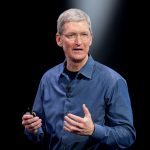
Some documents are historically significant. They mark moments, comment on them, in manner demanding future citation and even use in courts or classrooms. That's how I read Apple CEO Tim Cook's "Open Letter to Our Customers", about breaking iPhone encryption. His exposition spotlights seminal moment in the United States of America: Government's further expansion of powers encroaching indiviuals' rights to privacy and one company standing up and saying "No".
Some people will scoff at my comparison, but it truly is what I see. Cook is like Rosa Parks, refusing to take a seat at the back of the bus—or in this instance behind one court judge and the FBI. Cook and Apple stand up for us all. I applaud law enforcement's efforts to protect us from terrorism but tyranny shouldn't be the means; taking away Constitutionally-given freedoms to protect them. Tim Cook is right.
Why Apple is right to reject the order to unlock a killer's phone
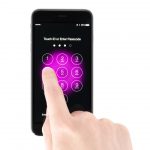
Apple has been ordered by the US courts to help the FBI gain access to data on an iPhone belonging to San Bernardino gunman Syed Rizwan Farook. Farook and his wife killed 14 people in the California city late last year before being shot dead by police.
The FBI says the phone contains information crucial to the investigation, and needs Apple’s help to unlock it. Data on Apple devices is encrypted by default -- and has been since September 2014 -- which means no one, other than the device owner, can access it. And that includes Apple itself.
Mozilla wants to educate us all on encryption

Terrorists use encryption. They also breathe air, drive cars, and drink water. What do I mean by saying this? Well, just because a bad person uses something, doesn't make the thing they use evil. In fact, encryption is not evil at all -- it is a tool to protect the privacy and communications of all people.
Sadly, not everybody understands encryption. There is nothing wrong with being ignorant on a subject -- not everyone can be knowledgeable about everything. With that said, some politicians and other decision-makers could enact policy about encryption due to knee-jerk reactions to things they don't understand. Luckily, Mozilla has a new initiative aimed at educating people as to what encryption actually is.
Recent Headlines
Most Commented Stories
BetaNews, your source for breaking tech news, reviews, and in-depth reporting since 1998.
© 1998-2025 BetaNews, Inc. All Rights Reserved. About Us - Privacy Policy - Cookie Policy - Sitemap.